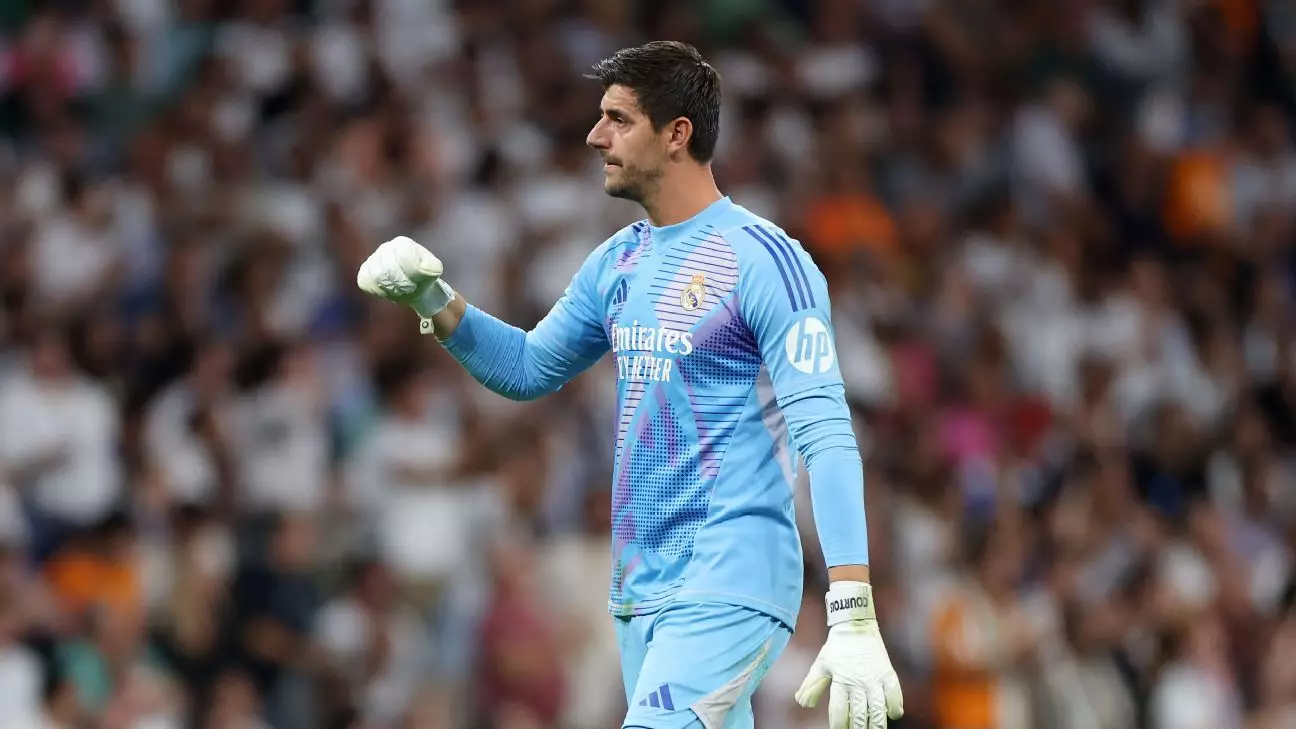In a sport that thrives on passion and excitement, the well-being of its key figures—players—should take precedence. Recently, Real Madrid’s star goalkeeper Thibaut Courtois aligned with Manchester City’s Rodri regarding escalating concerns about the congested football schedule. Rodri suggested that players might soon contemplate strike action if the relentless pace of matches persists. This statement resonates deeply within the football community, where maintaining player health and performance is becoming increasingly challenging amid an ever-expanding calendar of fixtures.
Courtois echoed these sentiments, emphasizing the need for balance amidst the constant demands placed on athletes. The notion of a player strike, while alarming, reflects a growing awareness among professionals who face physical and mental tolls from an exhaustive schedule. The involvement in multiple competitions—including UEFA’s Champions League and FIFA’s newly introduced Club World Cup—means that elite teams could exceed 70 matches in a single season. This relentless pace raises questions about player safety, longevity, and the overall quality of the game.
The Financial Argument: Worth the Price?
Both players and fans are often reminded of the lucrative nature of top-tier football. The widespread assumption that higher wages come at the cost of player welfare fails to consider the long-term implications of such a grueling lifestyle. While reasonable compensation is indeed a justification for the demanding schedules, it should not overshadow the necessity of preserving the athletes’ health. Courtois himself pointed out that fans deserve to see the best players perform, suggesting that sacrificing player well-being for financial gain risks diminishing the quality of the sport.
The question arises: Is it wise to prioritize profit over player care? Excessive match schedules can lead to increased injury rates, diminishing the entertainment quality for fans who expect to witness star athletes competing at their finest. Striking a balance is crucial, as the mounting pressure could ultimately affect the game itself—something neither players nor fans desire.
This delicate situation is particularly palpable within elite clubs like Real Madrid, where expectations run high. The addition of high-profile players, such as Kylian Mbappé, introduces a complex dynamic to the squad. Although Rodrygo provided the assist for Mbappé’s inaugural Champions League goal, the media often overlooks him, deeming him less significant in the trio comprising Jude Bellingham, Mbappé, and Vinícius Júnior. Such narratives can affect players’ morale and intraclub harmony, further complicating an already demanding environment.
As Real Madrid embarks on another Champions League campaign, the pressure to perform against opponents while balancing player fitness remains a pivotal struggle. With the club trailing in La Liga, the stakes may lead to hurried decisions that prioritize immediate results over long-term player health.
The stakes are high, and the stakes must not come at the expense of player welfare. Dialogue surrounding these issues is essential, and the voices of players like Courtois and Rodri must be heard as they bravely outline concerns regarding fixture congestion. If left unaddressed, these issues could spark a movement calling for systemic changes in the sport. Adapting match schedules and re-evaluating the logistics of competitions should be paramount considerations for governing bodies to safeguard the sport’s future, ensuring both its competitiveness and integrity for generations to come.

